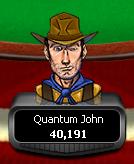Well, it was a long, but interesting two weeks, with lots of pain, lots of high blood pressure (measured as high as 195/110) and several new developments.
First, I met with a local interventional radiologist who recommended that he go in and angioplasty my right renal (kidney) artery and look around at all the other arteries in the area, but he wanted to discuss it with my kidney specialist (nephrologist) first. So, I got a call later from an assistant of the radiologist who told me the radiologist talked to the kidney guy, and that the kidney guy wants to see me before the radiology guy does the plasty thing, so I should call the kidney guy right away to get an appointment. So, I call the kidney doctor's office, and they tell me I already have an appointment in 6 weeks. Yes, I explained, but now there's a more urgent matter so I need an appointment right away. Okay, they put me through to the doctor's assistant and I left a voice mail. The next day the assistant called me back and I explained everything, and the assistant said she would talk to the doctor and call me back. That was over a week ago, and they have not called me back. Grrr.
Okay, so the first instance of a major symptom immediately prior to the eventual discovery of FMD was on Sunday, July 13, with lots of abdominal pain, which later localized around my right kidney. I tried to tough it out and went to work as usual on Monday, but the became intolerable and I left after working 7 hours, feeling pretty lame that I couldn't hack just one more lousy hour. Monday night was horrible, and I didn't sleep much, and went to my general practitioner (GP) first thing Tuesday morning, and it didn't take long before she called an ambulance to take me to the hospital. They checked me for kidney stones and gall stones and junk like that, which were all negative. They found a suspicious wedge shaped thing in my right kidney that would need further investigation, and gave me pain meds and sent me home. It wasn't until July 30th that I finally ended up getting an angiogram that revealed FMD in my main right renal artery for sure, and showed a complete blockage in a smaller renal artery that had resulted in the death of 5% of my right kidney, and another partial blockage right next to it. However, no one mentioned the FMD to me, with the possible exception of the radiologist right after the angiogram while I was still stupid from the drugs. Stupider than usual, that is.
Well, this last paragraph is to give you dates, so you can fit this in: In the first week of August, I started noticing a pain in my right shoulder, and it kept getting worse and worse. So I went to my GP about, and was referred to an orthopaedist for a possible tear in my right rotator cuff muscle. Except how could I have torn a muscle? I hadn't been doing anything! Well that led to some big news this week. The ortho doc said all the symptoms fit a tear in the right rotator cuff muscle, gave me a shot in the shoulder and told me to come back in 3 weeks. Did that, and my shoulder was hurting worse, and that wasn't all. The shoulder had only hurt when I moved certain ways. It hurt really bad when I moved it those ways, but when I was a good boy and didn't move it those ways, it didn't hurt. ["Doctor, when I do this, it hurts." "Okay, don't do that."] But in the meantime, my right bicep had started hurting, all the time. So ortho doc sends me for an MRI of my shoulder and I have to wait until yesterday to see her and get the results. And... there's no tear. That's good, right? There's clearly some tendinitis in my shoulder, and some fluid around the joint, and the MRI doesn't show down my arm. The problem is that the tendinitis doesn't explain the severity of the pain.
Now, there's this version of FMD called intimal fibrosis that occurs in less than 10% of FMD cases, but it can cause problems in any artery anywhere, like in a shoulder. I had thought of this a few times, but the odds were really, really tiny. Until I find out I've got no tear. Now those very tiny odds only seemed like tiny odds. The odds my have been tiny, but they were, like, moving in the wrong direction, you know what I mean? So I start thinking too much about it, pondering life without my favorite right arm, and so on. Then I woke up in the middle of the night with a better theory. A much more likely theory. A highly probably theory, that lets me keep my arm solidly attached to the rest of me. Very Tense Muscles. Just hold on, it'll make more sense in a minute.
I went to my GP early this week for a comprehensive review of The State of John, with all the test results, trips to the emergency room with high blood pressure, etc. And as part of the catalog of complaints, the doc noticed my muscles were very tense. I said they had been that way a long while, and I knew it, I just hadn't been able to successfully convince my muscles to relax. It's apparently a reaction to the pain. Or possibly space aliens, but I'm going with pain as the primary culprit. So doc suggests some muscle relaxing drugs. Hey, I'm a basket case, what's one more drug to test? Well, I started taking methocarbamol (generic for Robaxin) "as needed" and pow -- it knocked my blood pressure way down, and reduced my average pain significantly. I hadn't realized just how tense my muscles were!
Now back to the shoulder theory. Tendinitis and tense muscles -- muscles acting like they were constantly doing isometric exercises. What's the treatment for tendinitis? Rest. Don't use the muscles, dummy! Except my muscles were using themselves without permission from the rest of me. So instead of taking the muscle relaxer only when my blood pressure goes high, I'm going to take it regularly for while and wear a sling to remind me not to do anything with my right arm (other than blogging), and I fully expect my right arm to thank me in a week or two. One less source of pain would be a very good thing.
By the way, I had been down to a thyroid medication and pain patches for my feet as my only medications when my kidney blew up. Now I'm on the those, plus 2 blood pressure medications, pain pills, blood thinner, and muscle relaxers. Phooey. By the way, at home, I take the generic version of Vidodin for the pain. They gave a script for Percacet, which is supposed to be stronger, but it does nothing for me. Not only does it not help the pain, it doesn't even give me the intoxicating effect that most people get. Tried it 2 weeks apart, just in case the first time was an anomaly. This, I have no explanation for. Yes, I still have an almost full bottle of Peracet. No, I won't sell it to you. You'll have to get your own malady for that.
For now, it's 11 days and counting until I see Dr. Olin.







